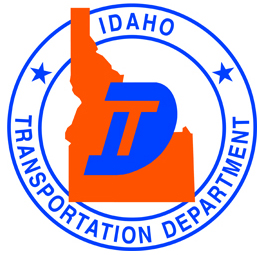
I-15 interchange funding, Gagner’s re-election and local small-town funding highlight board’s February meeting
A request for public-private partnership interchange funds in southeastern Idaho, the re-election of the board’s vice chairman, and a report on local funding for small towns highlighted the Feb. 22 Idaho Transportation Board meeting in Boise.
Election of Vice Chairman
District 6 Member Lee Gagner was re-elected as vice chairman of the Idaho Transportation Board. Gagner, a business man from Idaho Falls, was initially appointed to the board in 2008. He is serving his second six-year term. The lifelong entrepreneur served in the Idaho legislature from 1997 through 2004. Lee and his wife Linda have two grown children. 
Public-private partnership I-15 Siphon Interchange request
Millenial Development Partners requested the board’s participation in a public-private partnership that includes constructing a new I-15 interchange at Siphon Road in Bannock County.
Plans are underway to develop the Northgate Center in the Pocatello/Chubbuck area, integrating office, retail, residential and recreational opportunities.. The master-planned community would include a technology park, providing an anticipated 6,000 technology jobs, a retail and commercial village, and 10,000 residential units.
Both municipalities and the county support the development and have committed funding, which may be in the form of infrastructure improvements. The developer asked the board to contribute $5 million for the interchange. The remaining funding would be provided by the development community.
After a number of questions, including on issues such as financing, design, and right-of-way, the board took the request under consideration, but did not make a decision.
Local Rural Highway Investment Program (LRHIP) Annual Report
The Local Highway Technical Assistance Council provided an annual report on the Local Rural Highway Investment Program.
The goal of the LRHIP is to provide funding to rural local highway jurisdictions for construction projects and planning. A Board policy authorizes the exchange of local federal funds for State Highway Funds in an amount not to exceed $2.8 million annually. The funds are exchanged at a rate of 0.6167. The funds are available to cities with less than 5,000 population, county road and bridge departments, and highway districts that collect local taxes or have alternative funding mechanisms for highways and bridges. Funds cannot be used for wages, equipment, or for consultant use on infrastructure projects.
In FY16, 16 of the requested 55 construction projects were funded for $1.56 million; 1 of the 3 federal-aid match requests was funded for $100,000; all seven of the transportation plan applications were funded for $307,000; and 10 of the 15 sign applications were funded for $277,000. Four emergency projects were also funded for almost $300,000. The program continues to be very popular and can’t meet all of the local needs.
Published 03-03-17